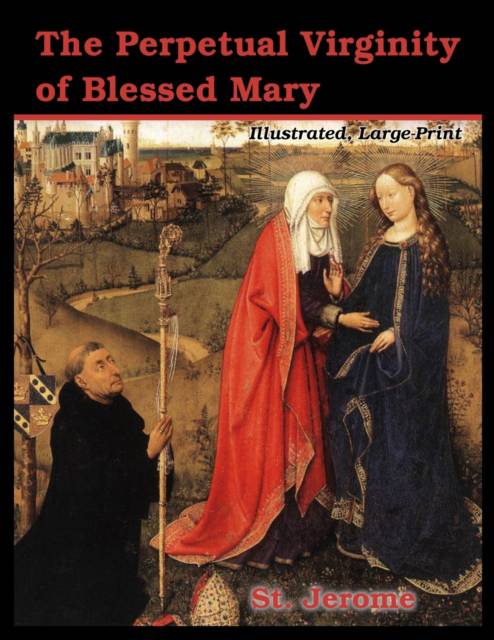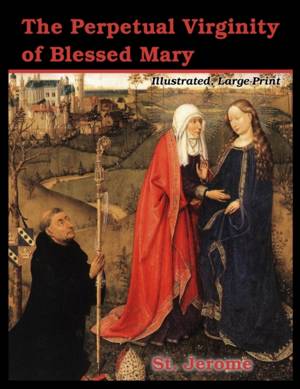
- Afhalen na 1 uur in een winkel met voorraad
- Gratis thuislevering in België vanaf € 30
- Ruim aanbod met 7 miljoen producten
- Afhalen na 1 uur in een winkel met voorraad
- Gratis thuislevering in België vanaf € 30
- Ruim aanbod met 7 miljoen producten
Zoeken
€ 8,95
+ 17 punten
Omschrijving
St. Jerome (347 - 420) wrote this work against Helvidius, who stated that because gospels spoke of Christ having "sisters" and "brethren," then clearly the Virgin Mary must have had further children from Joseph, her husband. He supported this view from the writings of Tertullian (d. 220) and others. The issue was a contentious one in the early church and a number of councils were held in Asia Minor to establish the role of Mary in the divine economy of Christ. It is believed that Helvidius wrote his statements about the year 383 AD. Jerome gives a very scripture-based defense of the church teaching of his time, in Latin, insisting that Mary remained chaste before and after the birth of Christ. Interesting in its own right, this essay also gives a remarkable insight into debates of the early church. The source text used here is: A select library of Nicene and post-Nicene fathers of the Christian Church / Second series. Vol. 6, Letters. (Select works) / Jerome, Oxford: Parker. 1893. St. Jerome (d. 420); Henry Wace (1836-1924); Philip Schaff (1819-1893). The text has been enlarged to make it easier to read, and illustrations of the people and Biblical figures mentioned in the text have been added.
Alleen bij Standaard Boekhandel
+ 17 punten op je klantenkaart van Standaard Boekhandel
Beoordelingen
We publiceren alleen reviews die voldoen aan de voorwaarden voor reviews. Bekijk onze voorwaarden voor reviews.












